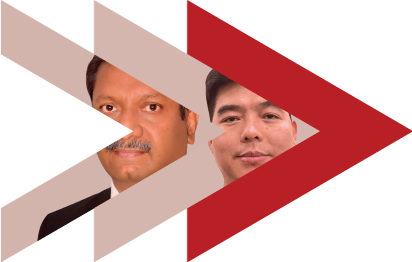Do you have what it takes to be a high-performing private banker? With rising competition, increasing client sophistication and volatile markets, capturing and maintaining profitable clients is arguably harder than ever for private bankers in Asia-Pacific in 2023.
Against that backdrop, it is essential that the region’s private bankers are equipped with the strategic, technical, emotional and intellectual skills to ensure that they maximise their relationships with clients and successfully prospect and convert new ones. In an interview with Asian Private Banker, Carl Thong, Singapore-based group managing director for Momenta Group, one of the region’s biggest training companies for wealth managers, outlines what private bankers should be prioritising in terms of skills development. “A high-performing private banker is typically a trained private banker. The best doctors are trained doctors,” he believes. “They have some natural gifts but you need to have a certain type of training.”
Synthesising skills
For Thong, who has trained bankers at UBS, Credit Suisse and Julius Baer, while it is crucial to have qualifications in finance or investments, it is vital that RMs can synthesise such skills in a way that best serves clients’ requirements. “Just because you can pass an exam and you can answer the question ‘what is a mutual fund?’ – It doesn’t mean anything if you don’t know how to apply a mutual fund into the conversation of a client to see if it’s suitable or how it fits into an overall wealth strategy,” he believes.
In Thong’s view, many private bankers in Asia have strong technical knowledge when it comes to capital markets and specific products, but require training to assimilate this into broader concepts of asset allocation, behavioural finance and portfolio management. Another important focus should be the management of the client themselves, such as having the emotional intelligence to navigate client objections and difficult questions. “It’s about what kind of questions need to be asked to a client to understand how a specific product fits into the client’s specific wealth journey,” he said, highlighting how product requirements vary significantly according to whether a client in is the wealth generation, wealth growth, wealth preservation or wealth transfer stage of their life.
Farming versus hunting
Another key to being a high-performing private banker is implementing an efficient system for client prospecting, Thong pointed out. “What you will find is that after six months in the job, all your friends have made all the introductions,” he explained. “You move within a certain finite group of friends – so now what? One of the functional skills a high-performance banker needs to know is how to systematically prospect, in addition to referrals.”
In that regard, Thong believes that bankers need to have a strategic, systematic approach to meeting new potential clients and filtering out genuine prospects from what he described as “suspects” – those that may not be viable clients due to KYC, source-of-wealth, or other issues. When prospecting, bankers should determine how much net new assets they need from new clients in order to meet their overall targets when determining their lead generation strategy. “If you have a US$50m target, and US$30m is going to come from existing clients – that means US$20 million needs to come from new clients. So how many people do you need to meet in order to achieve that number? Prospecting and hunting requires a business plan.”
Bankers need to also focus on a step-by-step approach to winning new clients, that takes into account lead generation, initial contact, winning trust, making a proposal, to KYC and funding. As part of Momenta’s training course, bankers get the opportunity to practise potential conversations with U/HNWIs in a no-risk environment. “Because when you meet a new prospect at the Shangri La or Mandarin Oriental in Central and you’re having tea with them – you’ve got one shot,” Thong explained. “After 45 minutes, that HNWI is going to make a simple decision on whether they really like you, if they want to meet you again, and what you can help them with.”
Strategic engagements
High-performing private bankers should also know how to have conversations with existing clients that can turn them towards more strategic investment decisions around their portfolios and asset allocation, rather than transactions, believes Thong. “A typical Asian client will ask – and it’s not the client’s fault – ‘is this product going to make money?’, ‘how much money is it going to make?’, ‘what’s the minimum amount of money it will make?’ and ’can you give me a discount?’. There’s absolutely nothing wrong with that, but a high-performing wealth advisor would be able to take those concepts two levels further,” he added.Instead, a private banker should focus on what the client’s broader investment objectives are – whether that is achieving passive income, or how a product fits into a wider strategy, or something else. “A strategic advisor really pulls back a bit on the product proposition and focuses on the richness of the dialogue,” he believes. “It’s a much richer, deeper conversation that requires maybe two or three more meetings. But here’s the opportunity – the outcome of those meetings generally becomes a much more holistic investment approach.
Daniel Shane, 8 May, 2023



